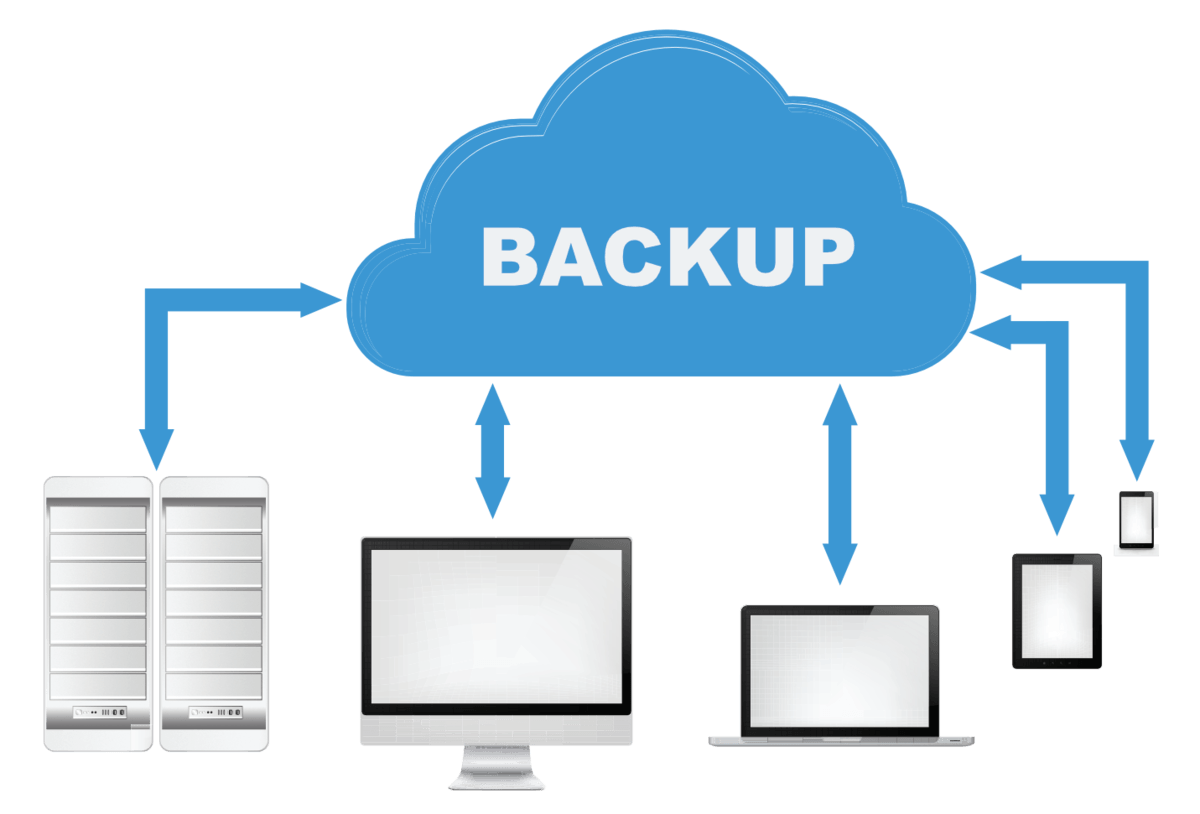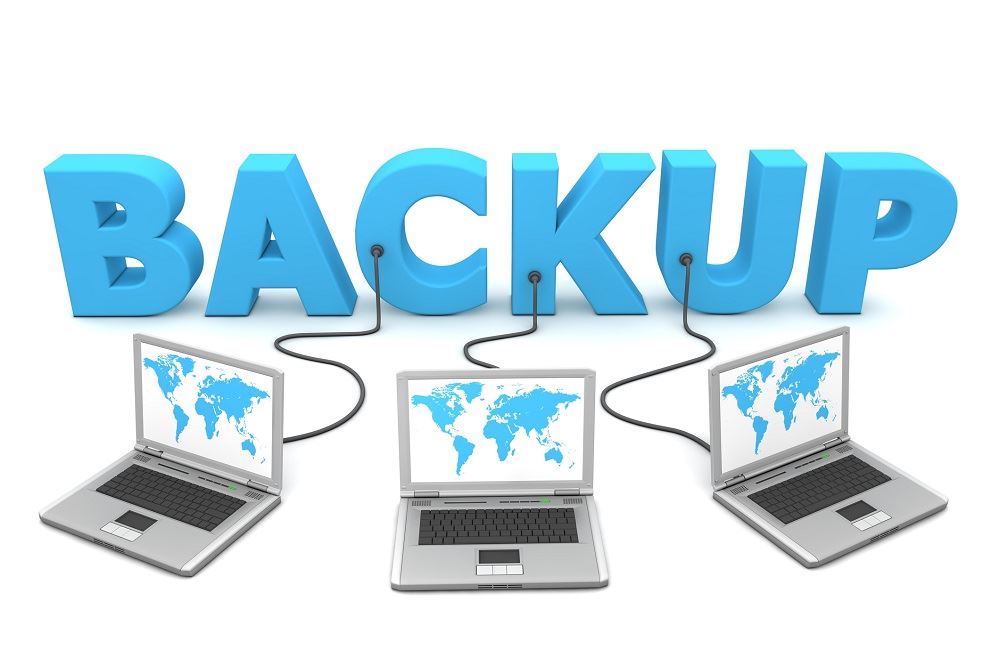Resilient Best Online Backup For Large Amounts of Data Future Outlook
Resilient Best Online Backup For Large Amounts of Data Future Outlook
Blog Article
Cross-platform Mac Offsite Backup Full Analysis
Data has become essential to businesses in today's digital age. Losing any of this crucial information, including customer, financial, and operational data, can have catastrophic repercussions. Small businesses require a dependable and secure backup option that can effectively protect their data because of this. Small businesses can benefit greatly from cloud-based backup because it offers flexibility, scalability, and security.
- Recognizing Cloud-based Backup
- Advantages of Cloud-based Backup for Small Businesses
- Features of cloud-based backup solutions' security
- Choosing the best Cloud-based Backup Service
- How to set up Cloud-based Backup for Your small business
- Automated Backup vs. Manual Backup: Which is Better?
- Using cloud-based backup to reduce downtime
- Using cloud-based backup to ensure data compliance
- Accessing and restoring data from a cloud-based backup
- Disaster recovery planning with cloud-based backup
- Comparing cloud-based backup to on-premise backup solutions
- Scalability and cost-effectiveness of cloud-based backup
- Getting Past Common Obstacles in Cloud-based Backup Implementation
Understanding Cloud-based Backup
The process of storing data on remote servers accessed via the internet is referred to as cloud-based backup. Businesses can securely store and access their data from anywhere at any time rather than relying on physical backup devices like hard drives or tapes. Hardware failure, loss, and theft are all eliminated as a result.
Tailored Backup Solution For Windows Azure Future Outlook
Benefits of Small Businesses ' Cloud-based Backup
Small businesses can benefit from cloud-based backup in a number of ways. It offers automatic backups, guaranteeing ongoing data protection without the need for human intervention. Cloud-based backup also enables simple scalability, allowing you to expand your storage capacity as your company expands. Additionally, it lowers the cost of hardware upgrades and maintenance.
Features of cloud-based backup solutions' security
To safeguard your data, dependable cloud-based backup solutions provide robust security features. To make sure that only authorized people can access it, these include encryption both during transit and at rest. Multi-factor authentication, for example, adds an additional layer of security to advanced authentication techniques. To ensure data integrity, regular audits and compliance certifications are also required.
Rapid Create Your Own Cloud Backup Service User Manual
Choosing the best Cloud-based Backup Service

Consider aspects like reputation, dependability, and customer support when choosing a cloud-based backup provider. Find service providers who have a history of uptime and data protection. To determine how committed they are to data recovery and restoration, assess their service level agreements ( Slas ). To find a solution that meets your company's needs, evaluate their pricing models and scalability options as well.
How to set up Cloud-based Backup for Your small business

The process of implementing cloud-based backup involves several steps. First, carefully evaluate your data storage needs and pinpoint important data that requires backup. Next, select a reliable cloud-based backup service provider and work out an agreement. Set up backup plans and choose the right retention policies. To ensure data recoverability, monitor and test your backups on a regular basis.
Cutting-edge Auto Backup For Tech Must-Haves
Automated Backup vs. Manual Backup: Which is Better?
Automated backups provided by cloud-based backup systems are much more dependable than manual ones. Human error is reduced by automated backups, which also guarantee consistent data protection without manual intervention. It decreases the likelihood of data loss brought on by forgetfulness or negligence while saving time and resources.
Using cloud-based backup to cut down on downtime
The ability to minimize downtime during data loss events is one of the key benefits of cloud-based backup. Businesses can quickly recover lost data and resume operations with regular backups stored in the cloud. The effect on productivity and customer satisfaction is reduced as a result. The downtime will decrease as the data restoration progresses.
Proactive Backup Solution For Idrive User Manual
Using cloud-based backup to ensure data compliance
Depending on their industry and location, businesses must abide by a variety of data protection regulations. By providing data encryption, access controls, and audit logs, cloud-based backup solutions can assist in achieving these compliance requirements. To avoid legal repercussions and safeguard private customer information, it is essential to choose a provider who abides by pertinent industry standards.
Data access and recovery from a cloud-based backup
Accessing and restoring data whenever necessary is simple thanks to cloud-based backup solutions. Anywhere with an internet connection, authorized users can access files and folders. Businesses can quickly recover their crucial data in the event of accidental deletion, hardware failure, or cyberattacks thanks to the my latest blog post data restoration process, which is typically simple.
Multi-layered Backup Solution For Dropbox Toolkit
Disaster recovery planning with cloud-based backup External Hard Drive Cloud Backup.
Disaster recovery planning depends heavily on cloud-based backup. Businesses can safeguard their data from physical disasters like theft, fires, and floods by keeping backups off-site in secure data centers. Businesses can quickly recover their crucial information and resume operations in the event of a disaster thanks to cloud-based backup.
Comparing cloud-based backup to on-premise backup solutions
Compared to conventional on-premise backup solutions, cloud-based backup has a number of advantages. Cloud-based backup eliminates the need for pricey hardware investments and ongoing maintenance. In addition, cloud-based backup offers more accessibility, scalability, and flexibility than on-premises backups, which are constrained by physical infrastructure.
Affordable Online Backup Services Canada Cost Analysis

Cost-effectiveness and Scalability of Cloud-based Backup
Businesses can scale up or down their storage capacity using cloud-based backup solutions because they are so scalable. Small businesses can afford it because of its scalability, which guarantees that they find more information only pay for the storage they need. Additionally, cloud-based backup makes it unnecessary to buy extra hardware or spend money on It infrastructure.
Overcoming Common Obstacles in the Implementation of Cloud-based Backup
While cloud-based backup has many advantages, small businesses may find it difficult to implement. Large data volumes, potential bandwidth restrictions during peak hours, and the requirement for consistent internet connectivity all contribute to slow initial backups. But with the right planning, monitoring, and backup provider selection, these difficulties can be reduced.
High-speed Online Backup Macbook Air Guide
Important Notes:
Small businesses can have flexibility, scalability, and peace of mind thanks to cloud-based backup.
- Data protection in cloud-based backup solutions depends on security features like encryption and authentication.
- For data protection, it's essential to pick a reputable and trustworthy cloud-based backup provider.
- Implementing cloud-based backup entails steps like data analysis, provider choice, configuration, and monitoring.
- Cloud-based solutions' automated backups are more dependable than manually performed ones.
- Cloud-based backup facilitates quick data restoration and lowers downtime during data loss events.
- Security measures used in cloud-based backups can be used to comply with data protection regulations.
- Cloud-based backup makes it simple to access and restore data from any internet-connected location.
- Offsite backups offered by cloud-based solutions improve disaster recovery planning.
- Cloud-based backup has benefits over on-premises solutions, such as cost-effectiveness and scalability.
Businesses only have to pay for the storage they require thanks to cloud-based backup's scaleability.
- With careful planning and selecting the right provider, common obstacles to implementing cloud-based backup can be overcome.
For small businesses, data loss can have serious repercussions. You can safeguard sensitive data and guarantee business continuity with cloud-based backup.
Key Takeaways or a related term
-cloud-based backup reduces the risk of loss and ensures data protection.
- Flexible and scalable cloud-based backup solutions are advantageous for small businesses.
- Data integrity is guaranteed by security features like encryption and authentication.
- For trustworthy cloud-based backup services, picking a reputable provider is crucial.
Data assessment, provider choice, and configuration are proper implementation steps.
- Automated backups save time and lower the possibility of human error.
- Cloud-based backup makes it easier to restore data quickly and reduces downtime.
- Cloud-based backup enables compliance with data protection regulations.
Cloud-based backup solutions make it simple to access and restore data.
- Offsite storage for cloud-based backups improves disaster recovery planning.
In terms of cost and scalability, cloud-based backup has an advantage over on-premise solutions.
Scalability ensures cost-effectiveness in the implementation of cloud-based backups.
- With the right planning, difficulties like slow initial backups can be overcome.
- Successful cloud-based backup implementation depends on reliable internet connectivity.
Report this page